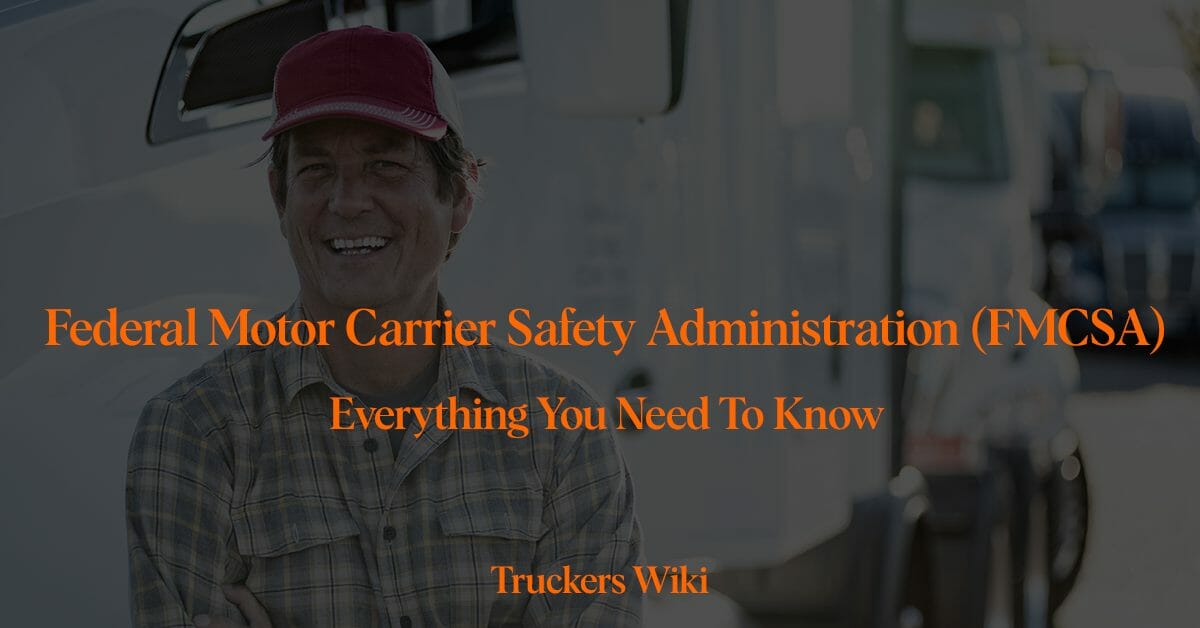
Table of Contents
What is Federal Motor Carrier Safety Administration FMCSA
The Federal Motor Carrier Safety Administration (FMCSA) is an agency within the United States Department of Transportation (DOT). Established on January 1, 2000, its primary mission is to prevent commercial motor vehicle-related fatalities and injuries. This is achieved by enforcing safety regulations, improving safety information systems, strengthening commercial motor vehicle equipment and operating standards, and increasing safety awareness.
You can listen to this article at the end of the page.
Organization and Administration
The FMCSA is led by an Administrator appointed by the President and confirmed by the U.S. Senate. The current Administrator is Robin Hutcheson. The agency is headquartered in Washington, D.C., with regional field offices across the United States.
Roles and Responsibilities
The FMCSA has a broad range of responsibilities designed to improve safety on the nation’s roads. These include:
Regulation: The FMCSA establishes and enforces regulations that aim to reduce crashes, injuries, and fatalities involving large trucks and buses.
Safety Data and Analysis: The agency collects and analyzes data on motor carrier safety and uses this data to measure safety performance and to identify and address problems.
Outreach and Education: The FMCSA develops and promotes educational materials and initiatives to increase safety awareness among truck and bus drivers.
Licensing: The FMCSA oversees the federal Commercial Driver’s License (CDL) program, which requires drivers of certain types of motor vehicles to obtain a CDL.
Research and Technology: The agency conducts research into innovative technologies and practices that have the potential to improve safety.
Key Programs and Initiatives
The FMCSA administers several key programs and initiatives, such as:
Compliance, Safety, Accountability (CSA): A major initiative aimed at improving the safety of commercial motor vehicles in the United States. CSA uses data from roadside inspections and crash reports to identify unsafe carriers and drivers and prioritize them for interventions.
Electronic Logging Devices (ELD): As of December 2017, the FMCSA mandates the use of ELDs by commercial drivers who are required to prepare hours-of-service records of duty status.
Drug and Alcohol Clearinghouse: This is a secure online database that provides real-time information about commercial driver’s license (CDL) and commercial learner’s permit (CLP) holders’ drug and alcohol program violations.
The Role of the FMCSA in Trucking
The Federal Motor Carrier Safety Administration (FMCSA) plays a crucial role in regulating truck drivers within the United States. It provides oversight and enforces safety regulations for commercial drivers to ensure the safety of the roadways.
Licensing and Training
The FMCSA sets the standards for the testing and licensing of new truck drivers through the Commercial Driver’s License (CDL) program. These standards ensure that truck drivers have the skills needed to operate commercial vehicles safely. The agency also provides guidelines for proper training programs for these drivers.
Hours of Service Regulations
One of the key responsibilities of the FMCSA is the enforcement of Hours of Service (HOS) regulations. These rules are designed to prevent driver fatigue, a significant factor in road accidents involving trucks. They specify the maximum number of daily and weekly driving hours, mandatory break times, and minimum rest periods between shifts.
Safety Standards and Regulations
The FMCSA enforces numerous safety standards that directly affect truck drivers. These include regulations on vehicle maintenance, cargo securement, and the transportation of hazardous materials. They also include guidelines for medical qualifications and drug and alcohol testing.
Data Collection and Reporting
The FMCSA collects and analyzes data on trucking accidents and safety violations through its Compliance, Safety, Accountability (CSA) program. The CSA uses this information to identify high-risk drivers and carriers and prioritize them for interventions.
Electronic Logging Devices
The FMCSA implemented the Electronic Logging Device (ELD) rule, which requires most motor carriers and drivers to use ELDs to record their hours of service. These devices make it easier and faster to accurately track, manage, and share driving records data, thereby ensuring compliance with HOS regulations.
Drug and Alcohol Clearinghouse
The FMCSA oversees the Drug and Alcohol Clearinghouse, a secure online database that provides real-time information about CDL drivers’ drug and alcohol violations. This helps employers make informed hiring decisions and ensures that drivers receive necessary treatment before returning to safety-sensitive functions.
The FMCSA plays a key role in regulating the trucking industry, with a specific focus on the safety and well-being of truck drivers. Through the enforcement of rules and regulations, the agency seeks to reduce crashes, injuries, and fatalities involving large trucks and buses on the nation’s highways.
FMCSA Latest
5 ELDs removed – 2.29.24
Truck Speed Limiter Rulemaking Postponed to May 2024 – 1.29.24
10 ELDs removed – 12.2023
External Links
FMCSA Website – click here.
Drug and Alcohol Policy – FMCSA – click here.
Listen to the article here
(FMCSA) Everything you need to know Federal Motor Carrier Safety Administration Goverment (US Gov) what is
Last modified: March 9, 2024

